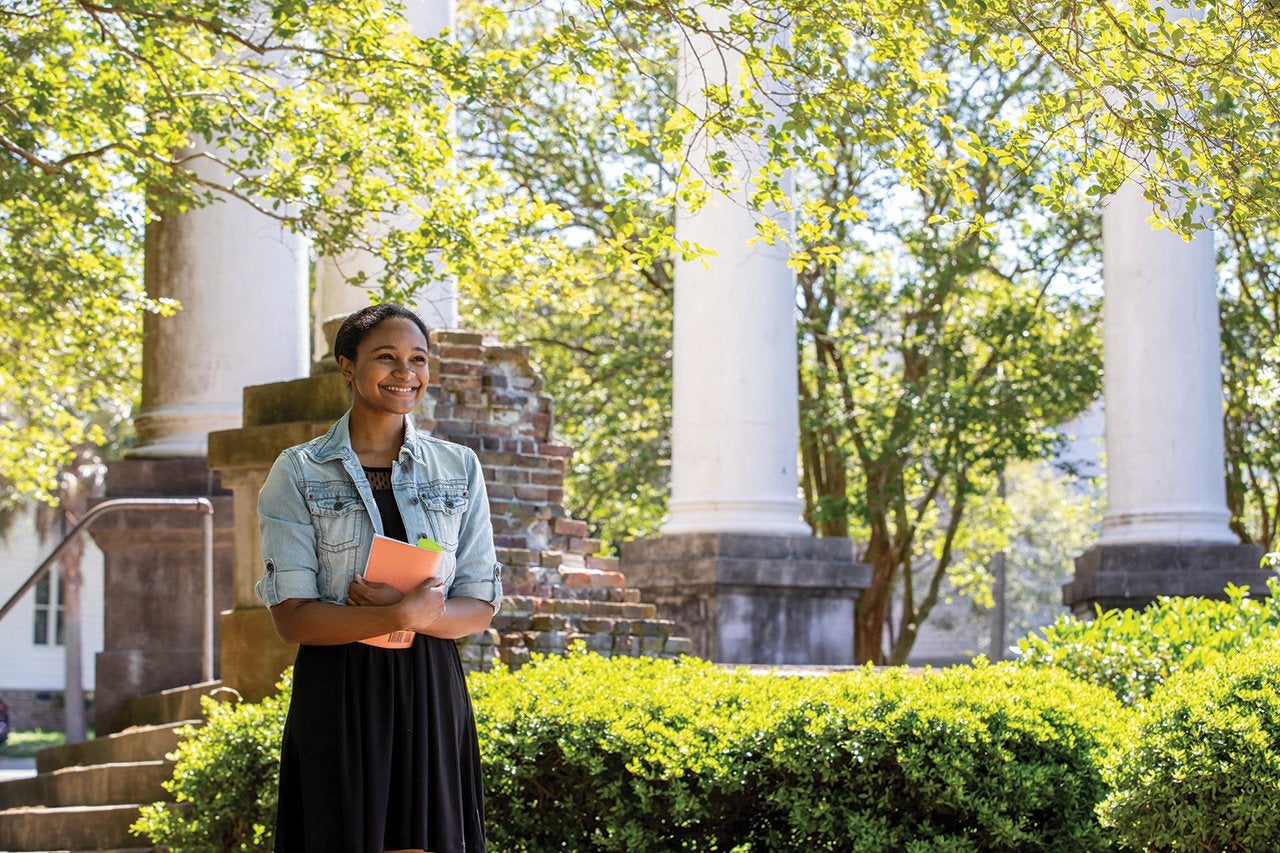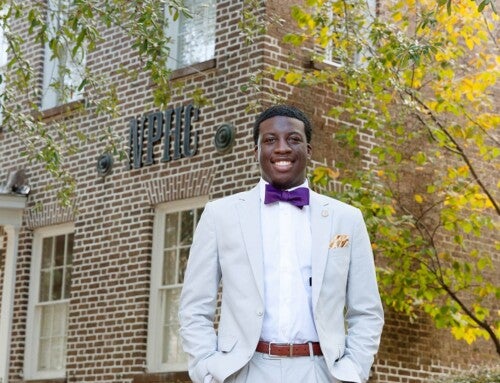It’s said that Classics majors find their future in the past. For Lauren Curry ’23, a double major in Classics and archaeology, that statement barely scratches the marble. Curry didn’t just graduate with an A.B. (Artium Baccalaureatus) – the College’s oldest degree (and one of the most prestigious) – she’s also taking with her a wide array of skills and practical experience garnered as an undergraduate assistant at the Avery Research Center for African American History and Culture.
“Working at the Avery Center has been one of the highlights of my time at the College,” says Curry, who wants to become an archivist.
A lot of her time there was spent helping researchers.
“One ongoing project,” she says, “involves compiling a digitized list of the Avery’s former teachers and students so when people come in trying to research their ancestors and family members, that’s more of a turnkey process.”
So why pursue majors in Classics and archaeology in a day and age when most soon-to-be graduates are focused on the most secure route to a job?
“That conversation happens at my house every holiday gathering,” says Curry. “But my parents have accepted this choice because of the way I arrived at it. I chose this major based on an end goal – getting accepted to a master’s program so that I can become a museum studies professional. I sort of reverse-engineered it and chose Classics because I knew it would prepare me well to excel in that field. I tell people that Classics teaches you how to learn. So I truly believe that all the skills and knowledge I acquired in this program I can bring into other areas or fields.”
Curry says all the classes she’s taken in the Classics department have engaged her. And she finished up her final semester with another such course.
“We studied monuments in Rome, looking at them from an archaeological perspective,” she says, “but also from a literature and an art history perspective. It was an engaging way to get a well-rounded perspective regarding the importance of these monuments.”
That could be said of the Classics major in general – it not only provides an unequaled perspective of the Roman and Greek civilizations and those two languages, but also refines the analytical and communication skills needed to approach any problem creatively. For employers, this major is a strong sign that this person has demonstrated superior intellectual and practical skills.
“My thought was that every business, institution or organization has records that need to be managed,” says Curry. “Training as an archivist enables you to go into lots of different fields. With these skills, I could work within a corporation, an institution, an NGO or really in any area. That makes the Classics major pretty versatile.”




